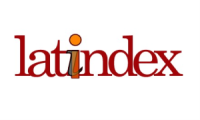Quantum machine learning: bridging the GAP between classical and quantum computing
Abstract
This research examines the revolutionary potential of Quantum Machine Learning (QML), which combines machine instruction and quantum computer technology. The work carefully compares QML methods to their traditional counterparts throughout real-world datasets using an interpretive approach as well as a deductive approach. The results show that in some areas, QML algorithms, such as Quantum Support Vector Machines (QSVM) and overall Variational Quantum Eigen solvers (VQE), provide substantial advantages in terms of accuracy and efficiency. Nevertheless, context-dependent factors such as dataset qualities and problem complexity have an impact on the practical consequences. This research underlines the necessity of further research on quantum simulation software and hardware in order to fully utilize QML. Additionally, it highlights the significance of quantum-resistant encryption and promotes cooperation between the various areas of quantum computers and machine learning. Future research ought to concentrate on improving QML programs' scalability and investigating QML's function in developing quantum technology.
Downloads
Copyright (c) 2024 ITEGAM-JETIA

This work is licensed under a Creative Commons Attribution 4.0 International License.











